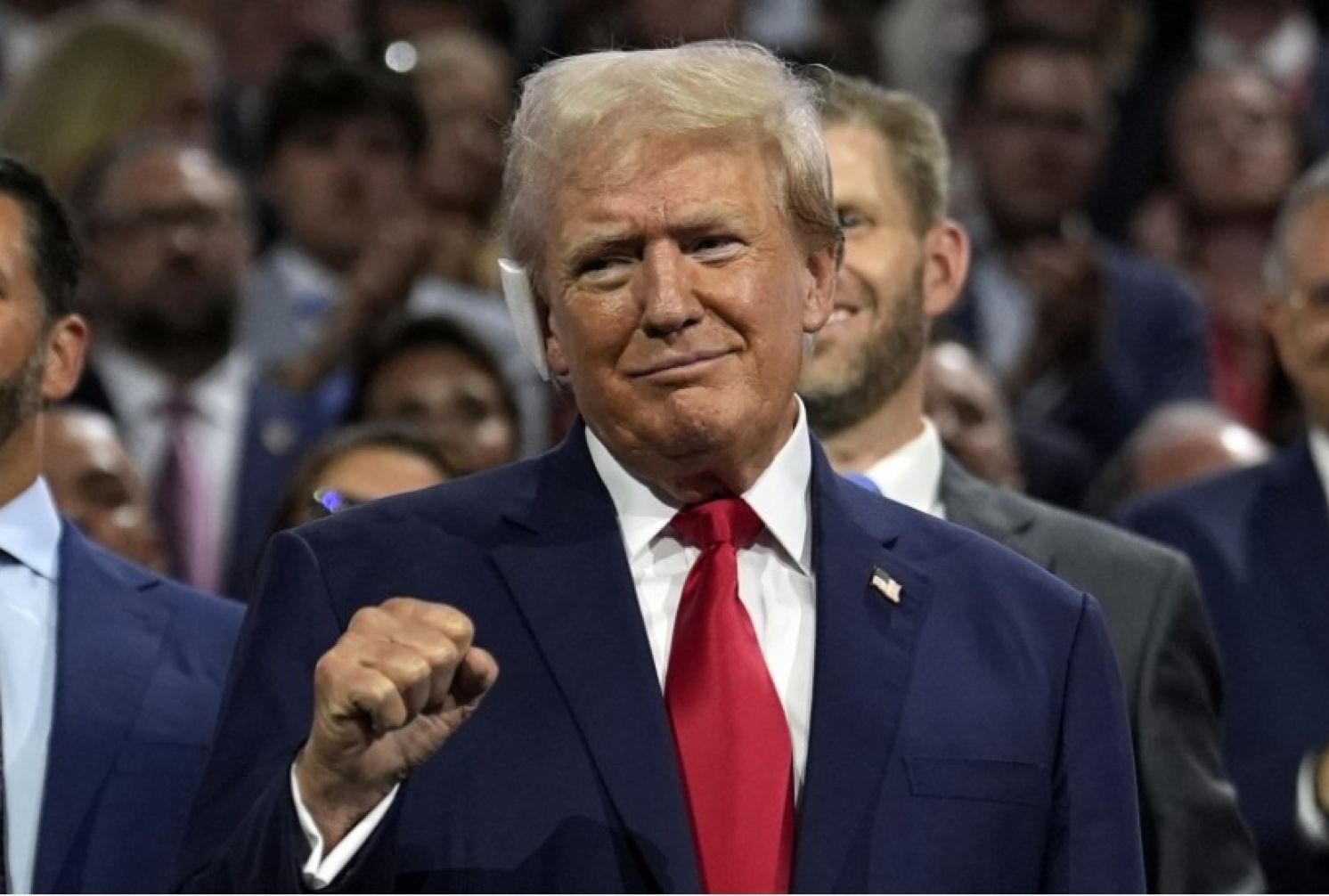
Trump’s Anti-China Stance Not Necessarily Friendly to Taiwan: Lai Administration Must Not Misjudge
China Times Editorial, November 14, 2024
The global impact of President-elect Donald Trump’s return to the White House is undeniable, with Taiwan’s national security officials rushing to signal allegiance through foreign media, offering NT$500 billion (about US$15.4 billion) for military purchases and emphasizing that Mr. Trump’s national security team is composed of “anti-China, pro-Taiwan” hawks who will not betray Taiwan. However, such shallow and reactive responses only highlight the Democratic Progressive Party’s (DPP) usual tendency to self-deceive and cover up the realities of the situation.
Mr. Trump's return to the White House isn’t surprising, as his unpredictability is still somewhat predictable. Four years ago, it was "Trump sets the tone, Biden follows"; today, it is "Biden sets the tone, Trump follows." Trump will continue his strategy of U.S.-China competition, viewing China as the top security and economic threat. The key difference between Mr. Trump and incumbent President Joe Biden is that Mr. Trump’s anti-China stance should not be equated with pro-Taiwan support. The DPP's policy toolbox, focused only on "relying on the United States to counter China," appears passive and unprepared for the new challenges brought by Mr. Trump’s return.
According to the Financial Times, Taiwan is considering large-scale U.S. military purchases, including Aegis destroyers, F-35 fighter jets, E-2D advanced early warning radar, and Patriot missiles, valued at NT$500 billion. National security officials have reportedly had "informal discussions" with Mr. Trump’s team about which weapons would demonstrate Taiwan's commitment to its own defense. Minister of National Defense Wellington Koo neither confirmed nor denied these reports but emphasized that in the face of increasing threats, Taiwan’s military continues to show its self-defense resolve and is open to acquiring any weapons that enhance Taiwan’s military capabilities.
According to a Financial Times report, the DPP seems eager to get on Mr. Trump’s good side, presenting loyalty and offering a "wish list" of weapons. However, many of the systems listed are merely "dream items." Will the United States actually agree to sell the most advanced F-35 fighter jets to Taiwan? To compensate for deficiencies in naval power, the United States recently announced the extension of the life of 12 Arleigh Burke-class destroyers—so where will the additional Aegis-class destroyers for Taiwan come from? On December 12, Mr. Trump nominated Fox News host Peter Brian Hegseth as Secretary of Defense, sending shockwaves through the Pentagon, and American national security officials are still not in place. Yet Taiwan’s officials have already made overtures—a move that seems out of step with logic. This rushed and clumsy maneuver will likely have little effect beyond domestic propaganda and will not win the trust or respect of the new American administration.
Senator Marco Rubio and Representative Mike Waltz are expected to be appointed Secretary of State and National Security Advisor, respectively. Taiwan has immediately highlighted their strong "anti-China, pro-Taiwan" stances, exaggerating them as guarantees for Taiwan’s security. In reality, Washington’s only current consensus is anti-China and counter-China policies. The hawkish factions within Mr. Trump’s camp are even more vocal in their support for Taiwan, with former Secretary of State Mike Pompeo and former Ambassador Nikki Haley, former permanent representative to the United Nations, pushing for Taiwan’s recognition as a sovereign state and as a U.N. member. As such, Mr. Trump’s appointments should be seen as references only, and overinterpreting them could lead to future misjudgments.
Mr. Trump is determined to avoid repeating the mistakes of his first term, and his second-term appointments will prioritize "loyalty" above all else. The future of American decision-making will be centered solely on Mr. Trump himself, with his personal preferences playing an even larger role in the process. Figures like Marco Rubio and other Republicans are gradually adjusting their stances to align more closely with Mr. Trump’s mindset. Therefore, whether it is the China or cross-strait policy of the United States, the final decisions will be rendered by Mr. Trump.
In this context, Mr. Trump’s return will undoubtedly lead to a more aggressive anti-China stance, but he has expressed numerous concerns over Taiwan, such as Taiwan’s need to pay for protection, the requirement to increase defense spending to 10 percent of gross domestic product (GDP), accusations of Taiwan stealing American semiconductor technology, and his refusal to make specific commitments to defend Taiwan. These issues stand in stark contrast to the Biden administration's approach, creating significant uncertainty in U.S.-Taiwan relations going forward.
Raising the discussion to the level of geopolitics and strategy, under the aim of "Make America Great Again," Mr. Trump's belief is that globalization is detrimental to the American economy and labor force and that allies are taking advantage of the United States. Protectionism should replace free trade, and "tariff" is the most beautiful word in the dictionary. The values of freedom and democracy will be diluted, and realism will become the mainstream ideology.
In contrast to President Lai’s “four-pillar plan for peace,” which emphasizes strengthening national defense, building economic security, enhancing cooperation with democratic nations, and establishing stable, principled leadership in cross-strait relations, the second Trump presidency will likely result in Taiwan facing higher defense expenditures in exchange for American support with no guarantees. Taiwan’s massive trade surplus with the United States will become a target for high tariffs, and the semiconductor industry will face threats of being hollowed out. The "democratic umbrella" centered on the United States may no longer hold up, and under DPP rule, cross-strait relations are expected to remain unstable.
Since President Lai proposed his “four-pillar plan for peace” in the Wall Street Journal in July, it has been seen as the DPP’s cornerstone for safeguarding and stabilizing Taiwan. However, Mr. Trump’s return to the White House underscores the fragility of these pillars. If the DPP administration continues to rely on the "U.S.-China competition" card, it is likely that Taiwan will face a period of instability under Trump 2.0.
From: https://www.chinatimes.com/opinion/20241114005486-262101?chdtv